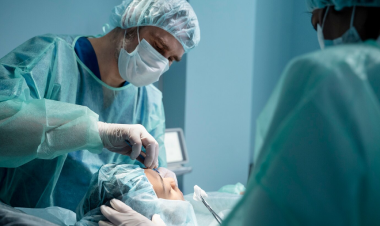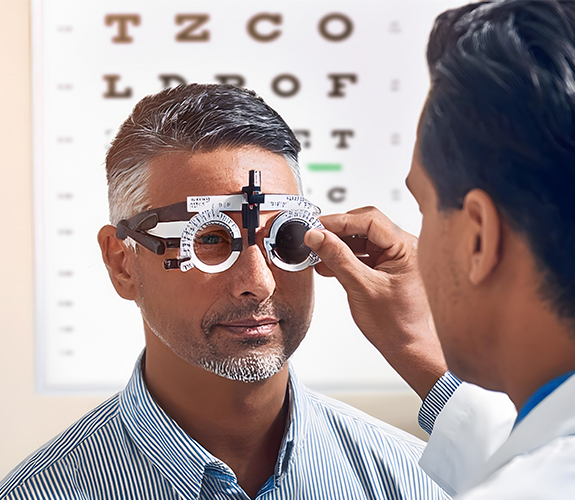Trauma surgery is a specialised field of surgery that deals with the immediate and urgent care of patients who have suffered severe injuries or trauma. Trauma surgeons are responsible for assessing, diagnosing, and treating patients with acute injuries, often in emergencies.
Types of Trauma Surgery
-
Orthopaedic Trauma Surgery: This surgery treats bone fractures and musculoskeletal injuries.
-
Neurotrauma Surgery: This surgery is basically for brain and nervous system injuries, which include skull fractures, brain haemorrhages, and spinal cord injuries; it is known as neurotrauma surgery.
-
Abdominal and Thoracic Trauma Surgery: This surgery is for abdominal and thoracic trauma and can be done to repair damage to the lungs, liver, and other abdominal and thoracic organs.
-
Vascular Trauma Surgery: This involves the treatment of injuries to blood vessels, including arterial and venous injuries.
Reasons for Trauma Surgery
There are many reasons why a patient may require trauma surgery. Some common reasons include:
-
Motor vehicle accidents: Trauma surgery may be required for patients who have suffered severe injuries in car accidents, including fractures, internal bleeding, and head trauma.
-
Falls: Trauma surgery may be necessary for patients who have fallen from a significant height or suffered a traumatic injury from a fall.
-
Sports injuries: Athletes who get serious wounds while participating in sports may need trauma surgery to fix shattered bones, torn ligaments, or other wounds.
-
Violence: Patients who have suffered from violent crimes, such as gunshot wounds or stab wounds, may need trauma surgery.
-
Burns: Patients who have sustained major burn injuries may also need trauma surgery.
Preparation for Trauma Surgery
Numerous vital measures must be taken before trauma surgery to ensure that the patient and the treatment can be carried out safely and properly. These steps include emergency medical evaluation, pre-operative imaging and testing, and anaesthesia considerations.
-
Emergency Medical Evaluation: The first step in preparing for trauma surgery is to perform an emergency medical evaluation. To prevent additional harm or complications, this requires stabilising the patient's vital signs, determining the severity of their wounds, and administering any required medical measures. The patient will likely receive first care from emergency medical workers before being taken to a hospital or trauma centre.
-
Pre-operative Imaging and Testing: After the patient has been stabilised, several tests will be carried out on them to determine the extent of their injuries and the best course of therapy. This could involve using X-rays, CT scans, MRIs, and blood testing. The results of these tests will help the trauma surgeon develop a surgical plan and determine if additional medical interventions are needed.
-
General Anaesthesia: Trauma surgery typically requires general anaesthesia to ensure the patient is comfortable and remains still during the procedure. Anaesthesiologists deliver and supervise anaesthesia, control any potential difficulties that can emerge during surgery, and change the dosage to guarantee the patient's safety.
Trauma Surgery Procedure
Trauma surgery is a specialised field of surgery that deals with patients who have experienced severe physical injuries. The trauma surgery procedure involves several essential steps, including resuscitation and stabilisation, surgical techniques, and post-operative monitoring and care.
-
Resuscitation and Stabilization: The first step in the trauma surgery procedure is resuscitating and stabilising the patient. This may involve providing emergency medical interventions to prevent further damage or complications, such as administering oxygen, fluids, or blood transfusions or providing mechanical ventilation. Stabilising the patient's vital signs and getting them ready for surgery are the objectives of this phase.
-
Surgical Techniques: Once the patient has been stabilised, the trauma surgeon will perform the necessary surgical techniques to repair any damage or injuries. This may involve removing damaged tissue or organs, repairing fractures or dislocations, or controlling bleeding. Depending on the kind and severity of the wounds, an open surgical treatment or a minimally invasive surgical approach may be used.
-
Post-operative Monitoring and Care: The patient will be constantly watched following surgery to ensure proper healing. This can entail giving pain medicine, keeping track of vital signs, and looking for infections or other problems. The length of hospitalisation or rehabilitation the patient needs to complete their recovery will depend on the severity of their injury.
Risks and Complications of Trauma Surgery
Trauma surgery is a necessary medical procedure that carries certain risks and potential complications. These risks may change depending on the patient's unique condition and the surgery type. Trauma surgery's most common risks and complications include bleeding and shock, infection, and nerve and organ damage.
-
Bleeding and Shock: Trauma surgery can cause significant blood loss, leading to shock if not promptly addressed. Patients who have experienced severe trauma may require multiple blood transfusions to replace lost blood and restore proper circulation. In some cases, additional surgery may be necessary to stop the bleeding.
-
Infection: Infection is another potential complication of trauma surgery, especially if the patient has an open wound or damage to internal organs. Antibiotics may be administered before, during, and after surgery to prevent infection. Patients may be monitored closely for signs of infection following surgery.
-
Nerve and Organ Damage: Depending on the extent and nature of the injuries, trauma surgery may cause nerve or organ damage. This can occur due to the surgical procedure itself or as a result of the underlying injury. In some cases, nerve or organ damage may be permanent, and the patient may require additional treatment or rehabilitation to manage the effects.
Recovery and Aftercare
Recovery and aftercare are crucial aspects of trauma surgery that help patients regain their strength and functionality. Depending on the type of surgery done, the size and nature of the damage, the recovery phase can differ.
Here are some critical elements of recovery and aftercare following trauma surgery:
-
Hospital Stay and Discharge: Following trauma surgery, patients typically require a hospital stay to monitor their condition and manage pain and other symptoms. Depending on each instance, hospital stays might last from a few days to many weeks. When the patient is stable and making progress, they will be released from the hospital with thorough directions for aftercare.
-
Pain Management: Pain management is essential to recovery following trauma surgery. Patients may be given medications to manage pain, and healthcare providers will closely monitor pain levels to ensure the patient is comfortable. Pain management may include non-pharmacological approaches such as massage, heat therapy, or acupuncture.
-
Rehabilitation and Physical Therapy: Patients may require physical therapy and rehabilitation after surgery, depending on the injury. This could involve occupational therapy to assist patients to regain their independence and carry out everyday tasks, as well as exercises to increase strength, flexibility, and range of motion.
Saroj Super Speciality Hospital: The Best Place for Trauma Surgery
Looking for the best place for trauma surgery? Look no further than Saroj Super Speciality Hospital!
Superior Facilities and Technology: We pride ourselves on our state-of-the-art facilities and technology at Saroj Super Speciality Hospital. Our hospital is equipped with the latest medical equipment and cutting-edge technology to ensure that our trauma surgeons have the tools they need to provide the best care possible to our patients. We also have advanced imaging equipment, such as CT scans and ultrasounds, to help diagnose and treat injuries quickly and accurately.
Experienced and Highly Skilled Surgeons: Our trauma surgeons at Saroj Super Speciality Hospital are highly experienced and skilled in caring for patients with traumatic injuries. They have extensive training and experience in emergency medicine and surgery and can quickly assess and treat patients with life-threatening injuries. Our surgeons are also highly skilled in complex surgical procedures to repair internal injuries, stop bleeding, and manage wounds.
Excellent Patient Care: At Saroj Super Speciality Hospital, we believe that quality healthcare should be accessible to everyone, which is why we strive to provide the best medical services. Patient care is of utmost importance, and our team of medical professionals, including nurses, technicians, and support staff, are dedicated to providing excellent patient care. We have a patient-centric approach, where patients' needs are always prioritised.
At Saroj Super Speciality Hospital, we prioritise your health and well-being and are dedicated to providing the highest quality of care possible. Don't wait any longer. Trust us to provide the best care for you or your loved ones. Contact us today to schedule a consultation or learn more about our services. Let us help you on your journey to recovery



